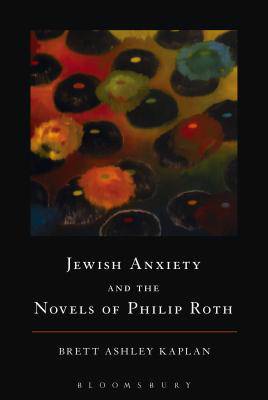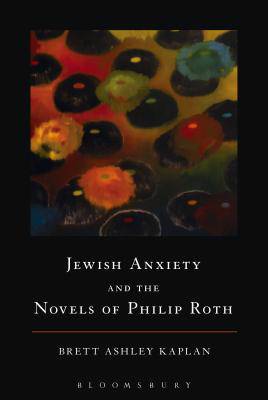
Bedankt voor het vertrouwen het afgelopen jaar! Om jou te bedanken bieden we GRATIS verzending (in België) aan op alles gedurende de hele maand januari.
- Afhalen na 1 uur in een winkel met voorraad
- In januari gratis thuislevering in België
- Ruim aanbod met 7 miljoen producten
Bedankt voor het vertrouwen het afgelopen jaar! Om jou te bedanken bieden we GRATIS verzending (in België) aan op alles gedurende de hele maand januari.
- Afhalen na 1 uur in een winkel met voorraad
- In januari gratis thuislevering in België
- Ruim aanbod met 7 miljoen producten
Zoeken
€ 88,45
+ 176 punten
Uitvoering
Omschrijving
Jewish Anxiety and the Novels of Philip Roth argues that Roth's novels teach us that Jewish anxiety stems not only from fear of victimization but also from fear of perpetration. It is impossible to think about Jewish victimization without thinking about the Holocaust; and it is impossible to think about the taboo question of Jewish perpetration without thinking about Israel. Roth's texts explore the Israel-Palestine question and the Holocaust with varying degrees of intensity but all his novels scrutinize perpetration and victimization through examining racism and sexism in America. Brett Ashley Kaplan uses Roth's novels as springboards to illuminate larger problems of victimization and perpetration; masculinity, femininity, and gender; racism and anti-Semitism.
For if, as Kaplan argues, Jewish anxiety is not only about the fear of oppression, and we can begin to see how these anxieties function in terms of fears of perpetration, then perhaps we can begin to unpack the complicated dynamics around the line between the Holocaust and Israel-Palestine.
For if, as Kaplan argues, Jewish anxiety is not only about the fear of oppression, and we can begin to see how these anxieties function in terms of fears of perpetration, then perhaps we can begin to unpack the complicated dynamics around the line between the Holocaust and Israel-Palestine.
Specificaties
Betrokkenen
- Auteur(s):
- Uitgeverij:
Inhoud
- Aantal bladzijden:
- 216
- Taal:
- Engels
Eigenschappen
- Productcode (EAN):
- 9781501324734
- Verschijningsdatum:
- 27/10/2016
- Uitvoering:
- Paperback
- Formaat:
- Trade paperback (VS)
- Afmetingen:
- 152 mm x 229 mm
- Gewicht:
- 294 g

Alleen bij Standaard Boekhandel
+ 176 punten op je klantenkaart van Standaard Boekhandel
Beoordelingen
We publiceren alleen reviews die voldoen aan de voorwaarden voor reviews. Bekijk onze voorwaarden voor reviews.









